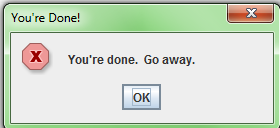It amazes me to see how many intelligent people here understand very little about subjective experience/reality.
What may seem easy to - you - may not seem easy to somebody else.
Do you really think none of us here realise this?
I've been informed that some people here have phD's, MSc's and MA's. Intriguing, they somehow believe their perception of the CFAT would be identical to an 18 year old high-school dropout.
Likewise, there are people here who ARE high school drop outs, who passed the CFAT with flying colours.
Members with -advanced degrees- are suggesting to some possible drop-outs that "the CFAT's so easy, just walk in, it will be a piece of cake." Neglecting the influence of background/academic/life experience on subjective perception.
Analogy: Would a Surgeon -see- the CFAT the same way as an 18 year-old drop-out?
Of course not, and yet both have an equal chance of passing it
I respect the opinions of some members on this forum, i.e. Loachman who I have followed around here and is a source of valuable insight with the maturity not to berate to make his point.
I've written the CFAT - twice. Messed up the first time. Abandoned the idea. Got curious, re-written the test - 9 years later. Whilst, in the mean-time, obtained further qualifications in general, capital, experience & maturity. The only steps I took to improve my score drastically was to -speed- up my basic arithmetic - just stopped using calculators at work in general. Aced the CFAT.
So when do you start BMQ then?
For the record - I do not think I am better than anybody and I think I've made this clear in several posts. Likewise, admitting failures & imperfections would be a bad approach to portray superiority.
But then again, posting your IQ score, and commenting on other threads about your physics/engineering degrees, is equally not the best way to portray humility

